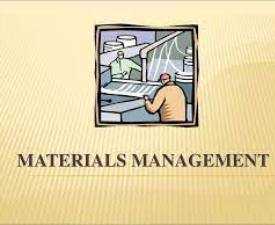Description
Course Name: Master Diploma in Material Management
Course Id: MDMM/Q1001.
Education Qualification: Graduate.
Course Duration: 370 Hrs.
How You will Get Diploma Certificate:
Step 1- Select your Course for Certification.
Step 2- Click on Enroll Now.
Step 3- Proceed to Enroll Now.
Step 4- Fill Your Billing Details and Proceed to Pay.
Step 5- You Will be Redirected to Payment Gateway, Pay Course and Exam Fee by Following Options.
Card(Debit/Credit), Wallet, Paytm, Net banking, UPI and Google pay.
Step 6- After Payment You will receive Study Material and Online Examination link on your email id.
Step 7- After Completion of Course Study give Online Examination.
Step 8- After Online Examination you will get Diploma Certificate soft copy(Scan Copy) and Hard Copy(Original With Seal and Sign).
Step 9- After Certification you will receive Prospect Job Opportunities as per your Interest Area.
Online Examination Detail:
Duration- 60 minutes.
No. of Questions- 30. (Multiple Choice Questions).
Maximum Marks- 600, Passing Marks- 40%.
There is No Negative marking in this module.
Benefits of Certification:
- Government Authorized Assessment Agency Certification.
- Certificate Valid for Lifetime.
- Lifetime Verification of Certificate.
- Free Job Assistance as per your Interest Area.
Syllabus
Master Diploma in Material Management
Evaluation of Materials Management
Introduction: Meaning and Scope, Objectives and Significance of Materials Management, Material Management in Other Areas of Management Functions, ABC Analysis: Meaning, Advantages, Objective, Purpose and Limitations, Simple Numerical of ABC Analysis, Codification and Standardization: Basis of Codification, Characteristics of Good Coding System, Types of Coding, Standardization and its Benefits, Purchasing Management: Objectives and Functions of Purchasing Department.
Codification and Standardization
Describe the need and role of codification, standardisation and simplification of materials from the viewpoint of the functions of planning, control, purchases, inventory, stores, etc, Describe the importance of standardisation and codification, Describe the design and implementation of codification systems, and standardisation in information system design, Codification, Codification Systems, Advantages of Codification, Standardization.
Purchasing Management
Introduction Purchasing and supplier management, Supplier selection and evaluation, Prices and contracts, Global sourcing, Global sourcing, No class – Thanksgiving, Procurement risks Environmental and social issues, Blackboard Collaborate Introductions, Introduction to Final Project, Introduction to Purchasing and Supply Chain Management, The Purchasing Process, Purchasing Policies & Procedures, Supply Management Integration for Competitive Advantage.
Managerial Economics
General Foundations of Managerial Economics – Economic Approach – Circular Flow of Activity – Nature of the Firm – Objectives of Firms – Demand Analysis and Estimation – Individual, Market and Firm demand – Determinants of demand – Elasticity measures and Business Decision Making – Demand Forecasting, Product Markets -Determination Under Different Markets – Market Structure – Perfect Competition – Monopoly – Monopolistic Competition – Duopoly – Oligopoly – Pricing and Employment of Inputs Under Different Market Structures – Price Discrimination – Degrees of Price Discrimination.
Project Management
Understand project management design, development, and deployment, Use project management tools, techniques, and skills, Employ strategies to address the ubiquitous issue of resistance to change, Align critical resources for effective project implementation, understand the implications, challenges, and opportunities of organizational dynamics in project management, Identify and use key performance metrics for project success, Understand how to manage project cost, quality, and delivery, Engage and lead effective project management teams in your organization.
Selection of Suppliers
Understand how supply chains influence competitiveness, ethics, and sustainability, Explain the role purchasing, operations and logistics play in the integrated supply chain, Use critical thinking skills in SCM, in structuring and analyzing practical problems, Use effective written and verbal communicators, How emerging technologies has transformed their production/service systems, Suppliers’ performance and/or capabilities.

